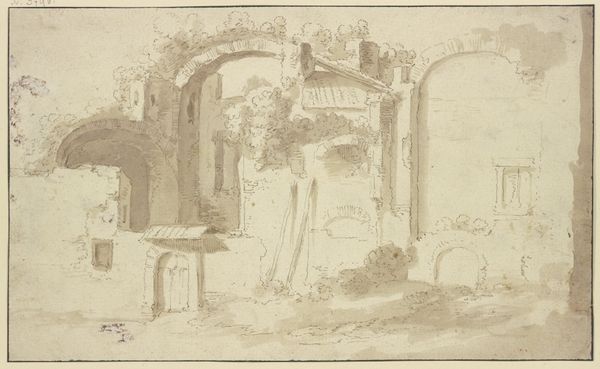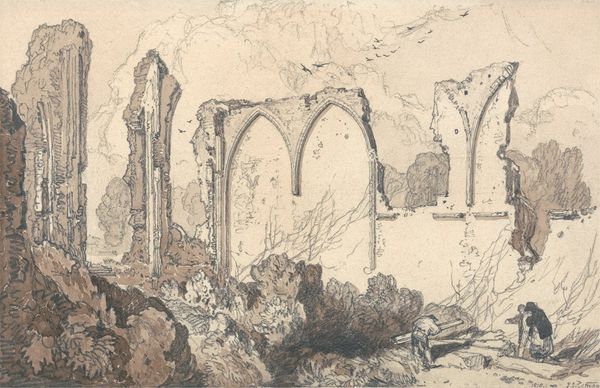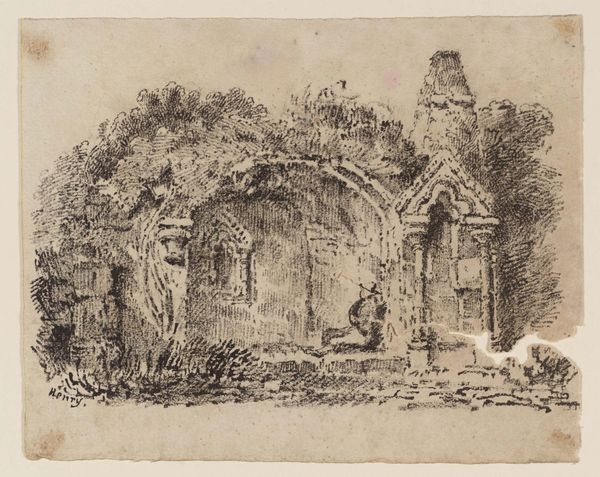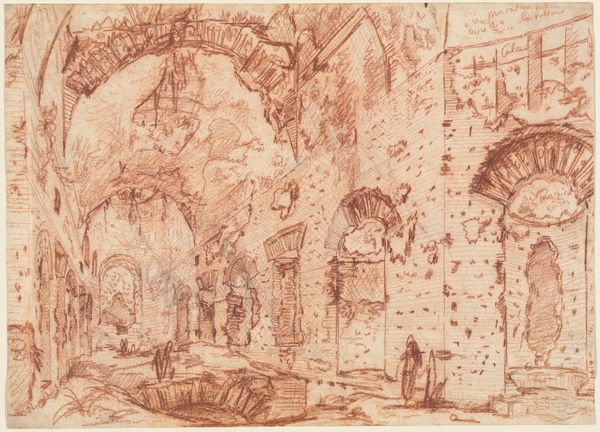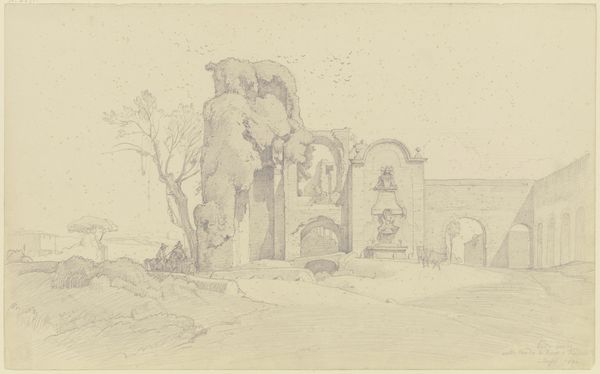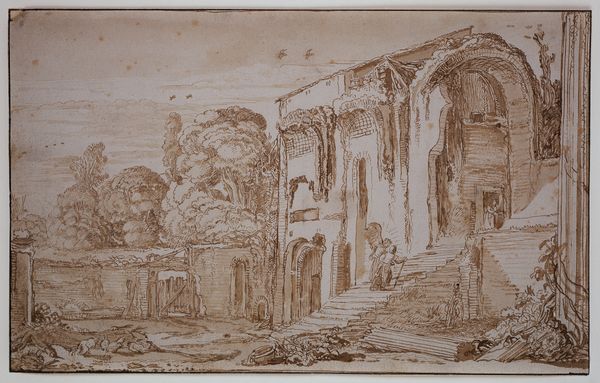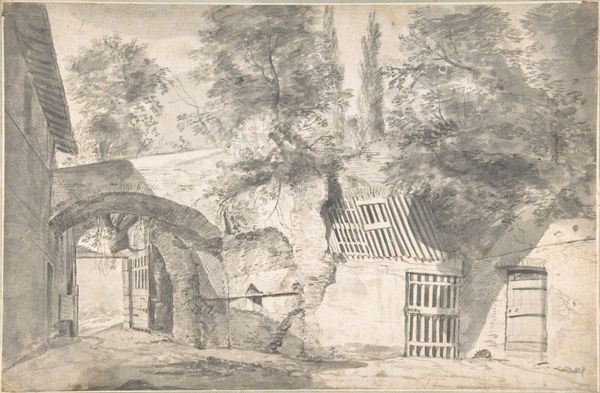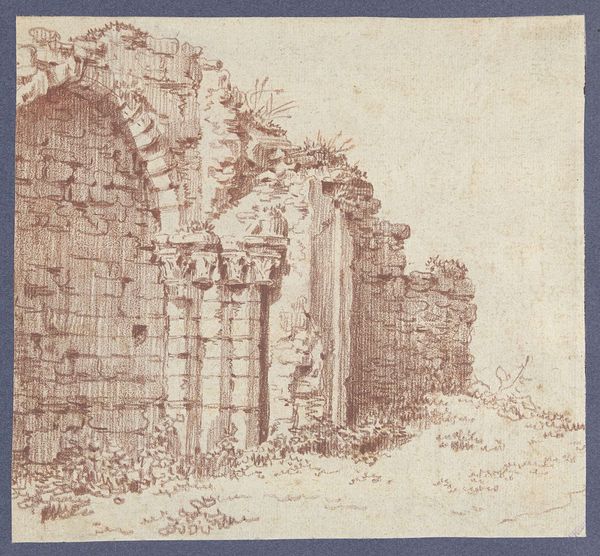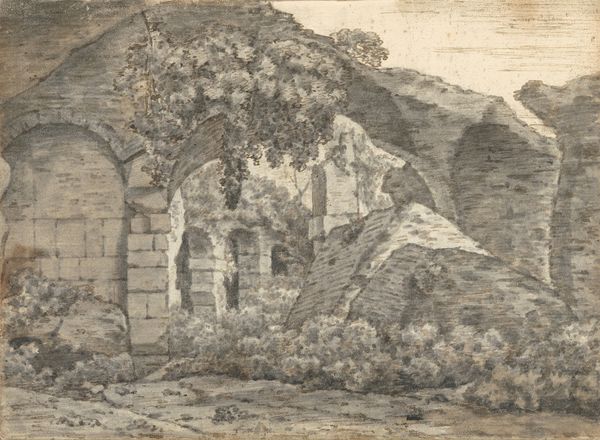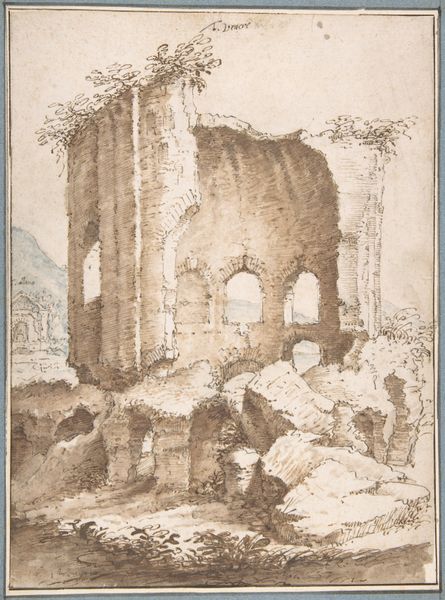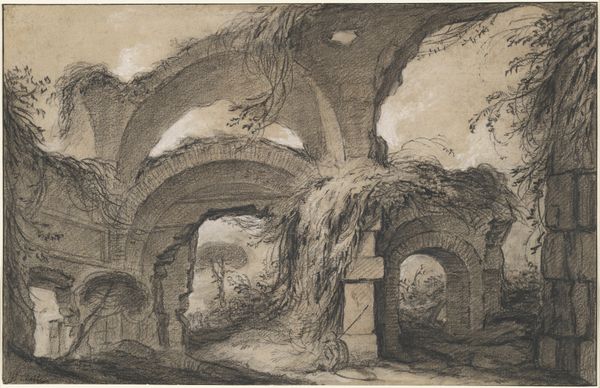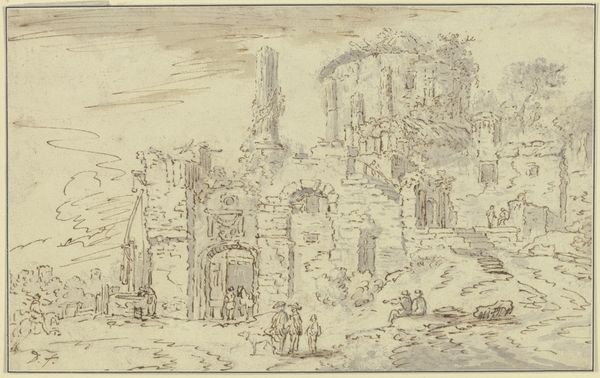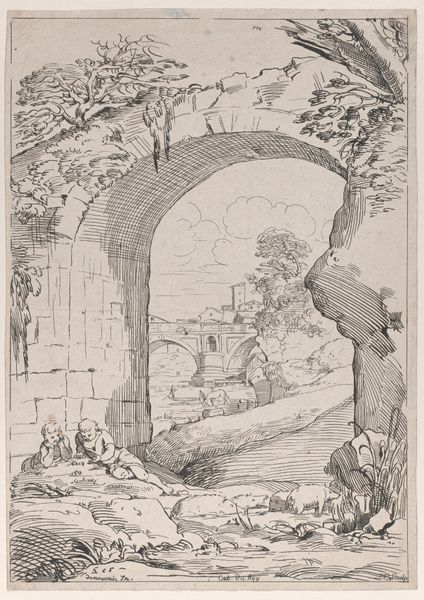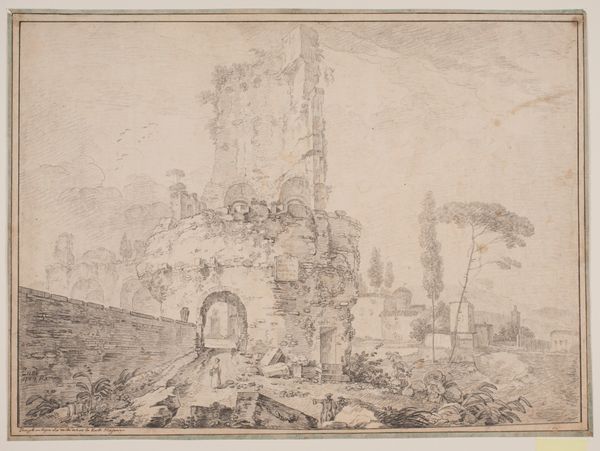
drawing, gouache, ink, indian-ink, architecture
#
drawing
#
16_19th-century
#
ink painting
#
gouache
#
landscape
#
ink
#
indian-ink
#
romanticism
#
history-painting
#
watercolor
#
architecture
Copyright: Public Domain
Editor: This is "Die Ruine Hubertuskapelle bei Bergen," a drawing by Anton Radl. It appears to be ink and gouache on paper. There’s such a sense of quiet melancholy in this ruinous landscape. What story do you see here? Curator: Radl captures a prevalent Romantic fascination with ruins. These crumbling structures weren't simply seen as decay, but as potent symbols of the past's grandeur and the transience of human endeavor. We see this fascination emerge at a particular point, don’t we, with shifts in social structures and the rise of nationalism. Does the inclusion of figures—the man and the goat—alter the mood for you? Editor: Yes, it’s interesting you point that out. They make it feel less remote. Like a staged performance, where you have remnants from the past as part of present cultural commentary. What was Radl commenting on? Curator: It's difficult to pinpoint a single definitive comment. Remember that the appreciation of ruins was also a political act. In a way these artists, by celebrating ruined abbeys, friaries or castles were expressing nostalgia for a certain form of order, implicitly expressing grievances against contemporary conditions. Editor: So, the choice of ruins was itself a political act embedded within the context of artistic creation and viewing. I hadn't thought of it that way, as a very pointed commentary of present issues with nostalgic imagery. Curator: Exactly! Consider where this work might have been displayed – perhaps a salon, perhaps a private collection. The audience, their social standing, their political leanings—all contribute to the reception of this ruin and its commentary. Editor: It's fascinating how a landscape drawing can contain so much historical and political context. Thanks for making that come to life. Curator: My pleasure. Looking at art through the lens of history reveals layers we might otherwise miss.
Comments
No comments
Be the first to comment and join the conversation on the ultimate creative platform.
